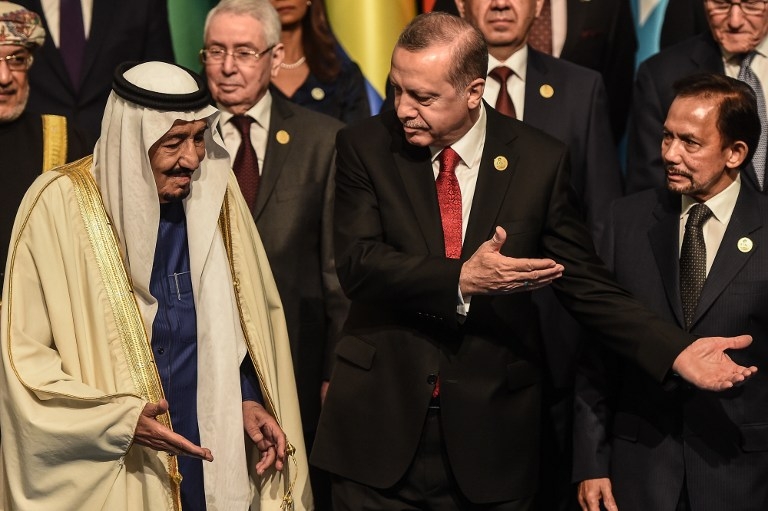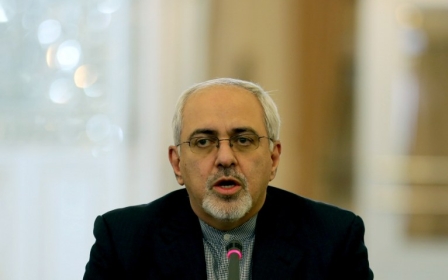Saudi recalibration: Ostracise Egypt and embrace Turkey

In a Middle East that is increasingly transforming, one has to admit that once solid alliances and strategic relations tend to become vulnerable and rather fluid.
Since 1929, Saudi-Turkish relations have waxed and waned depending on their regional and international orientations. Although there were promising signs earlier this year of flourishing relations between the two countries, it was premature to expect their ties to materialise into a genuine alliance simply because of the blatant incompatibility of their regional standpoints which have reached an apex in the aftermath of the Arab Spring.
In fact, President Recep Tayyip Erdogan constantly reiterates that Turkey’s ultimate goal is to anchor Turkish-Saudi strategic ties for the good of the entire region.
From his side, King Salman of Saudi Arabia repeatedly states that Turkey and Saudi Arabia read from the same page when it comes to Syria and that his country decisively backs Turkey’s no-fly zone in the war-torn country.
But in the middle is Egypt, chief impediment to any solid strategic alliance between the two countries - until now.
Split over Egypt
It’s no secret that the Turkish-Saudi divergence peaked right after the bloody military coup in Egypt in July 2013. Saudi Arabia backed the coup regime financially, economically and politically, whereas Turkey fervently opposed the ousting of a democratically elected president.
Since the June coup attempt in Turkey, Erdogan has relentlessly proclaimed his unequivocal stance towards such plots, saying repeatedly that he will never shake hands with Egypt’s President Abdel Fattah al-Sisi.
“Sisi is a putschist just the same as the coup plotters in Turkey because he led the military coup against Mohamed Morsi – the president elected by the people,” Erdogan said during an interview with Al Jazeera immediately after the thwarted attempt in Turkey.
And despite Saudi efforts to mediate reconciliation between Turkey and Egypt, it’s well known that Ankara’s relations with Cairo have remained frosty.
In a goodwill gesture in 2015, Turkey suggested four conditions for any reconciliation with Egypt: Morsi must be freed; the extrajudicial death verdicts issued against political activists must be annulled; all political detainees must be released; and the dictatorial veto against any political activities must be abolished so that a democratic milieu could be reinstated. Conventional wisdom tells us that Sisi will never accept such conditions simply because they’re unattainable.
Despite the challenges, in recent months, there have been two dramatic turning points that should urge Turkey and Saudi Arabia to work hand-in-hand and confront the imminent existential threat that may jeopardise their national interests and regional influence.
The Obama factor
First, the US has turned its back on its Sunni allies in the region. The Obama administration has repeatedly turned down Turkey’s regional initiatives and propositions. The US, Turkey’s primary ally, has utterly overlooked the Russian intervention in Syria and left its ally, Turkey, to deal alone with Russia’s hegemonic interventionist policy.
Furthermore, Washington’s strategy to defeat the Islamic State (IS) group has alienated Turkey, in particular the US alliance with Syrian pro-Kurdish militias. Tensions between Washington and Ankara have risen recently over the former’s support for the Democratic Union Party (PYD) in Syria despite Turkey’s repeated warnings that the group has direct irrevocable ties to the outlawed Kurdistan Workers' Party (PKK).
American-Saudi relations have also been deeply shaken to the core after the approval of the Justice Against Sponsors of Terrorism Act, (JASTA), the law which allows the families of victims of 9/11 to hold Saudi Arabia liable for its alleged role in the attacks.
Washington’s abandonment of deposed Egyptian president Hosni Mubarak in the wake of the Arab Spring upset the Saudis who had started to perceive Washington as an undependable ally. In his interview with Obama, Atlantic’s Jeffrey Goldberg revealed that long before he became president, Obama had referred to Saudis as “so-called” allies.
Further, the rapprochement between Washington and Tehran that may materialise after the nuclear deal is Saudi’s worst nightmare and has only made matters worse.
Bluntly, Turkey and Saudi Arabia are no longer optimistic that Obama’s administration will do them any good and Washington’s repositioning leaves them no choice but to pursue alternatives and seek new alliances.
The coming US administration will find itself in an unenviable position when the new president takes over in January 2017 mainly because the ship’s of former US allies may have already set sail.
Egypt’s betrayal
The second dramatic change was Egypt’s ‘painful’ stab in the back. Earlier this month, Egypt voted in favour of a Russian resolution on Syria, one that urged a ceasefire but made no mention of halting bombing on Aleppo. Although it’s not the only deplorable move Egypt has made, it has seriously peeved the Saudis.
Aside from Syria, there have been a host of other issues that have caused tension to mount between Cairo and Riyadh. At the outset of Saudi-led intervention in Yemen, Riyadh had expected Egypt to send ground troops as part of its Operation Decisive Strom, yet Cairo hasn’t done it. Surprisingly, Riyadh continued the flow of billions of dollars and ships of oil anyway and kept Egypt’s ailing economy afloat.
Riyadh was also infuriated when Egyptian officials hosted representatives of the pro-Iranian Houthis in 2015. But it seems it was the Syria vote that was the straw that broke the camel's back.
Since the vote, the Saudi Minister of Energy, Industry and Mineral Resources and chairman of Aramco, the Saudi state-owned oil company, Khalid Al-Falih, proclaimed that his company will suspend its oil shipments to Egypt.
An Egyptian official immediately announced that Egypt had found other sources to replace the Saudi fuel aid. Coincidently, the Saudi ambassador left Cairo for a three-day trip to Riyadh soon after. Undoubtedly, the ambassador’s departure that comes amid clear tension over Cairo’s votes on the Russian UN resolution on Syria gives clear indications that Saudis dissatisfaction with the Egyptian regime is drastically mounting.
This flurry of events came months after Egypt transferred sovereignty of the strategically placed Red Sea islands, Tiran and Sanafir, to Saudi Arabia which fuelled street protests in Egypt
It’s not surprising that Egypt’s bullying regime, as any typical mercenary would, has been maintaining channels of communication with the Iranian regime, Saudi’s primary foe, as a substitute - or rather as an intimidation strategy - to balance relations with Saudi Arabia.
And Saudi has responded. Just last week, the foreign ministers of the Gulf Cooperation Council designated the FETO group, led by Turkish cleric Fetullah Gulen, who lives in self-imposed exile in Pennsylvania, a “terrorist organisation” underlining their support for the Turkish government’s recent moves against the group.
Such a development signals a radical change in bilateral relations between Turkey and GCC and, overall, the enduring tension between Cairo and Riyadh could definitely lead to an inevitable realignment of regional powers. Expect axes of influence and interests to be recalibrated – and soon.
- Ahmed al-Burai is a lecturer at Istanbul Aydin University. He worked with BBC World Service Trust and LA Times in Gaza. He is currently based in Istanbul and mainly interested in the Middle East issues. You can follow him on Twitter @ahmedalburai1
The views expressed in this article belong to the author and do not necessarily reflect the editorial policy of Middle East Eye.
Photo: Turkish President Recep Tayyip Erdogan shows the way to King Salman bin Abdulaziz Al Saud of Saudi Arabia during the family photo of the 13th Organization of Islamic Cooperation (OIC) Summit at Istanbul Congress Center (ICC) in April 2016 (AFP)
This article is available in French on Middle East Eye French edition.
New MEE newsletter: Jerusalem Dispatch
Sign up to get the latest insights and analysis on Israel-Palestine, alongside Turkey Unpacked and other MEE newsletters
Middle East Eye delivers independent and unrivalled coverage and analysis of the Middle East, North Africa and beyond. To learn more about republishing this content and the associated fees, please fill out this form. More about MEE can be found here.





